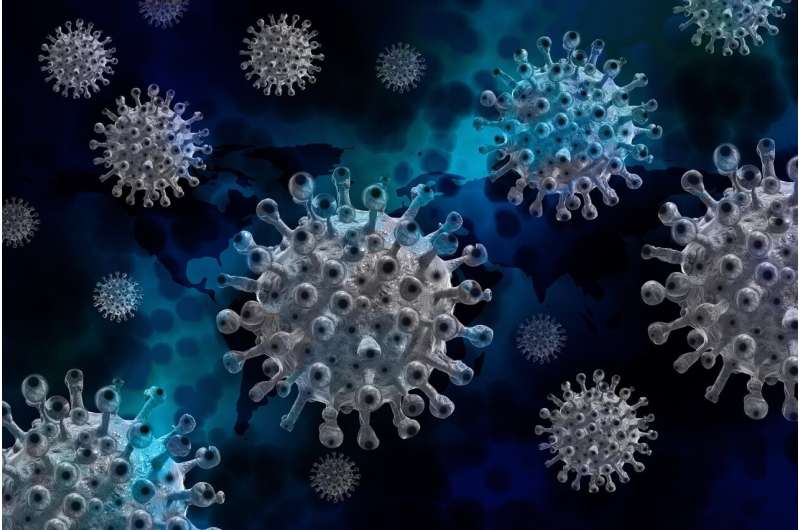Considering omicron fallout, and why travel bans are a waste of time


Nigeria is about to receive President Cyril Ramaphosa, who will be leading a delegation made up of government and business representatives, in the midst of the possible spread of the new COVID Omicron variant and a rash of global travel restrictions. In Nigeria concerns have been raised about the visit contributing to the spread of the new variant. Adejuwon Soyinka, The Conversation Africa’s regional editor for West Africa, asked Dr. Doyin Odubanjo, a leading public health expert, what he thinks of travel bans and of Nigeria’s handling of COVID so far.
What is your view of travel bans?
I understand the intention. But I think they have very limited effectiveness at this point. We have passed the early days of the pandemic and the disease has established itself with community transmission in each country. In this context travel bans have little value.
Also, by the time a variant is detected and announced, it has probably already spread to many unidentifiable countries. Shutting borders now will probably only cause greater socioeconomic damage rather than limit the spread of the disease.
The current spate of travel bans is rather hasty and irrational given that we know that the variant is in several countries already and there is no clear linkage between them yet.
The announcement by South Africa was that of detection and not in any way a proof of origin. There’s still a great deal that’s not known. It’s still not clear where this variant originated. Or how infection from it differs from previous variants, or whether vaccines will be effective against it.
Also, there is no proof that the Omicron variant has caused any significant damage or deaths anywhere. Virtually all detected cases so far are in people who seemed otherwise well. If anything, Europe is the region having a rather surprising rise in cases (despite the relatively higher vaccination rate, compared to Africa).
Nigeria has set down conditions for travelers coming in. Are they sufficient?
The Nigerian guidelines for incoming travelers are focused on detecting COVID with PCR tests (especially within 72 hours before travel and on the second day of arrival) and the use of non-pharmaceutical interventions. Unvaccinated passengers will also need to isolate for seven days as well as do additional PCR test at the end of the isolation period.
Travelers are expected to self-isolate till they receive a negative test result. It is good if it is implemented efficiently.
Is the Nigerian government doing enough to protect its citizens from the pandemic?
There seems to be fatigue everywhere and many things are no longer functioning as they used to.
Take testing at government facilities. This has reduced significantly and much of what is happening now depends on people paying for tests at private laboratories. The government was providing free testing across the country but much of that has stopped. So, many patients will not be able to afford the tests now.
People are also tired of complying with the non-pharmaceutical measures such as wearing face masks, handwashing and distancing. Instead they are now more concerned about making a living, more so with the fast-rising inflation.
Lastly, I think the government’s capacity to respond has been diminished because it’s lost credibility over time in relation to managing COVID. For example, in the way it has used resources, including human resources. Right in the midst of the pandemic, there have been strikes by health workers because of non-payment of remuneration, including allowances meant to be for COVID response.
What has Nigeria done right. And what has it done wrong?
At the beginning of the outbreak Nigeria set up a management system that was fairly effective given the circumstances. There was a speedy development of testing capacity to detect the disease around the country. There was also engagement of the private sector to support the national and sub-national response, among other things.
But many things were wrong too. I will emphasize the failure to effectively engage the health workers and communities. Unfortunately, these are such critically important entities that the country was faced with an uphill task once we failed to engage them properly. The health workforce are the foot soldiers needed to combat the disease while, ultimately, controlling the disease is dependent on controlling human behavior (in the communities).
Now what?
Better late than never. It is time to engage the citizenry the right way and to use the right tools.
Get the scientists and community leaders to lead this effort, the right way. They can engage to disseminate information better as people have more trust in them than politicians.
Nigeria has to get to where people use the non-pharmaceutical measures readily and happily by communicating effectively with them. Instructions and enforcement come after clear information and answering the questions people may have.
And the government must be more effective with border control. I’m not referring to travel bans here. They must effectively test, quarantine and treat where necessary, and trace contacts.
They should also create an advantage for the vaccinated traveler. They could, for example, impose fewer testing requirements on those who have been vaccinated.
Source: Read Full Article